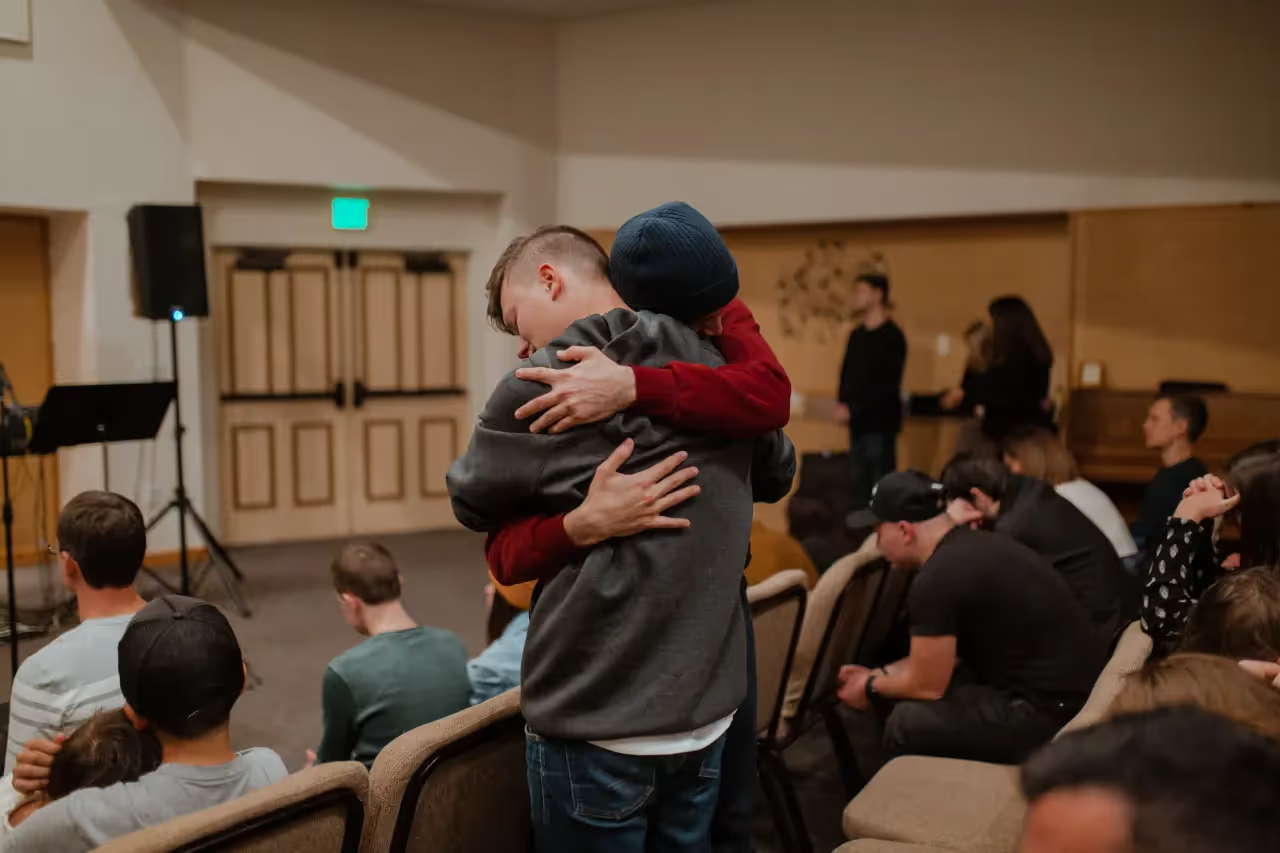In order to create a successful grief support group, you need first to familiarize yourself with certain fundamentals.It might be intimidating to lead a...

In order to create a successful grief support group, you need first to familiarize yourself with certain fundamentals.
It might be intimidating to lead a support group for people who have experienced loss, even if you work in the mental health field.
Starting a grief support group could be downright daunting, especially if you're not a trained professional and have no prior group facilitation expertise.
Because of this, it is highly recommended that anyone aiming to start a grief support group should do so in collaboration with professional therapists.
Before you start a grief support group, the first step is to plan your group.
At this stage, you decide on the vision of the support group, as well as certain specifics like the scope and duration of the group.
The initial stage forms the foundation or background of the support group.
Determine the format of the group.
This is where you decide whether it will be an open group or a closed group, as well as whether it will be virtual or in-person.
Also, consider who will facilitate the meetings.
Some people start up such support groups with the aim to facilitate it themselves if they have the experience required.
On the other hand, others may decide to partner with companies that have professional therapists and have them facilitate these meetings instead.
Read on to learn more about ways to start a grief support group.
Identifying your motivation for starting a grief support group is the first step.
Think about why you're making this choice and what factors contributed to your thinking.
Keep in mind that you should start a grief support group just to meet your personal needs.
Nonetheless, you are in a position to utilize your knowledge, skills, and experiences to comfort others who are grieving.
Also, while you plan the group, it is crucial to determine details like the scope and duration of the meetings.
How many people you wish to provide grief support to is a key factor in determining your group's scope.
If you don't limit the number of people you're willing to aid, your support group might end up being too big to accomplish anything effectively.
The time commitment involved in starting a grief support group is a significant consideration.
In order to better organize your group's time together, it may be helpful to set a specific beginning and ending date.
The frequency of your group's meetings should also be carefully considered when planning to start a grief support group.
Consider if you plan to make it a regular weekly event, either in person or virtually.
Also, when working in conjunction with a professional therapist, ensure you both work together to determine availability for them to be present at the meeting.
Also, consider if you are thinking along the lines of including an open, permanent online community for bereaved people.
Determine how frequently you'd want to meet after determining how much time you can devote to organizing the group.
The decision on the format of the support group will likely be dependent on the scope and vision of the support group.
If you are unclear about how to go about picking, you may contact professional therapists since they can assist you in choosing a proper format.
Support groups come into two categories: open and closed groups.
An open group comes with no attendance obligation and doesn't have a set start or finish.
These meetings enable members to jump in at any moment and include individuals at varying stages of bereavement.
Closed, time-limited groups are normally conducted for a certain number of sessions.
Participants are required to attend the initial session and cannot join the group part-way through.
This may have the advantage of creating trust between individuals within a short length of time and avoids concerns of reliance.
The group may have a maximum number of members defined in advance.
Both group models may include scheduled activities like inviting guest therapists from time to time, completing in-group homework or watching films, etc.
Either style of a group might also be unstructured, where the facilitator invites members to discuss whatever subject is on their mind that day.

Professionals with the right kind of training are the suitable choice of facilitators for bereavement support groups.
However, volunteers who have expertise in providing one-on-one assistance to persons or who have personal experience may also be considered.
When starting a grief support group, it's important to consider the sort of aid being provided so as to choose the most suitable kind of facilitator.
The grief support group's facilitators should have relevant professional experience and expertise in the field.
Additional training for facilitators, both in group facilitation and in bereavement, should also be considered along the line.
You may already have a location provided by your organization or whatever company you may decide to partner with, or you may need to scout one out.
Either way, there has to be enough parking space, clear directions for people who need wheelchairs, and sufficient lighting.
It should also include comfortable, moveable seats, preferably with back support.
Take into account the need for privacy/confidentiality; there shouldn't be distractions, or at least little distracting noise from other areas of the building.
The room's temperature and lighting should be flexible, and there should be whiteboards or flip charts available for use.
Supplemental tables and/or storage tables should be included as well as the means to access break refreshments when needed.
Those who have lost loved ones need grief support.
Group support is an effective way for people to come together and support each other in a trusted environment.
You can start a grief support group by planning your group, determining the frequency of
group meetings, finding your format, deciding on who will facilitate the group, and finding a location.
https://www.griefhealingblog.com/2015/07/starting-support-group-suggested.html?m=1
https://dying.lovetoknow.com/Sample_Grief_Group_Session
https://whatsyourgrief.com/how-to-start-a-grief-support-group/
https://www.joincake.com/blog/how-to-start-a-grief-support-group/
Dealing with someone who is addicted to drugs or alcohol can be difficult. It is important to remember that addiction is a disease, and the addict is not responsible for their behavior. You can offer support and understanding, but it is important to set boundaries. You can also get help for yourself through therapy or counseling.
Yes, we provide supportive counseling for family members who are struggling with the loss of a loved one. Our compassionate therapists can help you gain insight into your feelings and provide constructive strategies to cope with the pain of bereavement.
It can be difficult to know what to say to someone who is grieving, but sometimes simply being there for them and offering your support can be helpful. You might try saying something like, "I'm here for you if you need to talk" or "I'm sorry for your loss." You could also offer to help with practical tasks such as running errands or cooking meals.
Some signs that you may be ready to move on include feeling at peace with the breakup, no longer regularly thinking about your ex, and having a renewed sense of optimism. Ultimately, only you can decide when you're ready to start dating again or take other steps toward moving on.
There are a few things you can do to help ease your pain during the holiday season. First, try to avoid triggers that may cause you to feel sad or upset. Triggers can be anything from certain songs or smells, to seeing certain people or places. If you know there will be triggers at holiday gatherings, try to arrive late or leave early if possible. You can also try to create new traditions that don't involve the triggers.
There is no "right" or "wrong" answer when it comes to how long grief will last in the elderly. For some people, the grieving process may last for several months or even years. For others, it may come in waves – they may have periods of intense grief followed by periods of relative calm. It's important to remember that everyone grieves in their own way and at their own pace.